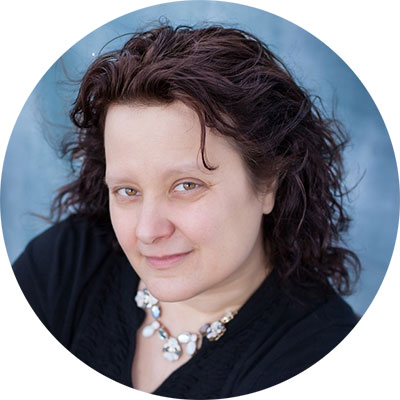My road to finding writing mentors has been like my writing style—long and winding!
My writing aspirations began with a popularity campaign. The kids in my small-town Wisconsin school didn’t know what to do with a quirky, creative kid who left the classroom when she already knew the material so that she could wait for a passing sixth grader who could answer her questions about how the world worked. My strangeness pushed other kids into their default setting for oddities—tease it until it goes away.
My strategy for addressing this problem was to become famous, clearly not an achievable task for the not-so average eight year old. But what did I know?
Not enough, clearly, so I went to the book with the most famous people I could think of—THE GUINESS BOOK OF WORLD RECORDS. I poured over the book, intent on finding a record I could break. I was already taller than the shortest person ever and with parent’s who were in the five-foot height bracket, I would never be the tallest woman in the world. With height records unreachable, I kept looking and discovered that Dorothy Straight had published a novel when she was six which was ironically titled something like The History of the World. I’ve never been able to find a copy of that book, but it inspired me to become a writer.
Unfamiliar with the role of writer, I did all I could to learn more, reading books, asking for advice, and trying to find people who would read my work. Things did not go well. The books said, “Write what you know.” What did I know, I was eight? My teachers didn’t want to read my work because I couldn’t spell, my penmanship was awful, and my short stories ran on the long side. They recommended I learned the fundamentals first. With dyslexia that proved challenging.
Fast forward to my first college professor who told me I didn’t know a thing about writing and I should just give up. See how well I listened?
Actually, what I said was, “Okay, if I don’t know how to write, then teach me.” And so I found my first reluctant mentor.
At first, graduate school wasn’t much better. When I asked a professor to read a novel I’d written, her reply was that she had to scrape and fight to get her own work published, so I would have to do the same thing. So much for finding a mentor.
Each of these challenges in my path toward finding a mentor taught me the importance of generosity and helping others. The very things I found when I entered the graduate program in writing for children and young adults at Hollins University. There, I met faculty and visiting authors who were generous with their time, talents, and mentoring skills. As a result of this amazing creative community, I won a scholarship to an SCBWI conference where I met the late agent George Nicholson who represented me for my first five novels, including my debut novel, The Year of the Sawdust Man which received my best blurb ever as a result of my time at Hollins. While I was there, Elizabeth Forsyeth Hailey came as a visiting author and she agreed to read my novel, saying after,“I read the book with the same sense of joy and wonder that I had when I read a debut novel by an unknown author, To Kill a Mocking Bird by Harper Lee.” This praise filled me with humility and gratitude, not just to her, but to the mentors who helped me write that book and to the program and the University which brought together so many amazing writers who could shepherd me through this process.

Finding Mentoring Opportunities
Not everyone can pool the resources of time and money to invest in a graduate program in writing like the one at Hollins though, so seeking mentoring opportunities like those offered by the writing workshops at The Highlights Foundation, the Society of Children’s Book Writers and illustrators (SCBWI), and wonderful regional workshops and conferences.
There are also fabulous mentoring programs offered through regional organizations like the Loft Literary Center in Minnesota, online programs like Kidlit College, and many of the MFAs in writing for children and young adults offer mentor opportunities, courses, and webinars.
There are also excellent literary coaches who specialize in writing for children like Emma Dryden of Emma Dryden Books who draws from her decades of experience in the publishing field to mentor writers, but like graduate programs, these services are quite expenses. For those who can afford it, they are an excellent way to go.
All of these are worthwhile avenues of honing your craft, but today, I wanted to focus on the benefits of mentoring with another author who has coaching experience whether it is in an established program like #Novel Direct at KidlitCollege or more informal writing groups like those you can develop through critique match up sites on Facebook like this one hosted by Subit Club. I’m a member of a critique group composed of clients with the same literary agents and I couldn’t be happier with support, challenges, and guidance of my fellow writers from Storm Literary Agency.
Going Into Mentorship in the Right Mindset
No matter how you approach the mentoring process the most important things to keep in mind are the need to be open to growth to importance of embracing the unnecessarily dreaded part of the writing process REVISION. The reality is that even the most polished and published authors can continue to grow and learn about their art and revision is NOT a punitive stage of a creative process. It should be an invigorating, creative, expansion of the initial flow of creativity that forges a story in its early, molten stages. For me, revision is a Re-Invisioning of my work that gives me an opportunity to explore the hidden recesses and layers of the work I started.
Why You Should Seek a Mentor
You know what it’s like when you go through your day thinking you’re looking great in your new outfit and then you see yourself in a mirror or a photograph and think, I look like that?
You need a literary version of a mirror and let me tell you, selfies are as distorted and hard to do in writing as they are with your phone. When you reread your work, it’s important to know the literary elements that go into making a good story great and to test your spelling and your grammar (something I’m still lousy at), but there is only so much you can really “see” when looking at your own writing because you automatically fill in all of the subconscious level inspiration and knowledge that went into creating the piece. That subliminal subtext doesn’t travel with your work and a mentor can help you see what isn’t on the page yet.
But unlike an editor who no longer has the time to share revision suggestions with you, a mentor will not only tell you what is not working in a piece, but they will give you the feedback you need to help you re-invision the piece and bring it to the height of its potential.
Why I Mentor
In my opinion, what I have was gifted to me to share with others and inspire them to make this world a better place.
The initial difficulties I faced in starting my career as a writer and the amazing mentors and guides I met in graduate school have all taught me the essential importance of sharing your talents and time with others in pursuit of the same goals.
In my opinion, what I have was gifted to me to share with others and inspire them to make this world a better place. As a writer, this happens by mentoring fellow writers to become the best they possible can at what they are seeking to do. It’s not my role to shape into a writer like myself because the world deserves to see, hear, read the voice and vision of each individual artist out there and a mentor’s job is to help them hone their own endowed skills. That’s why I teach in the creative writing program at Greenville College, the graduate program at Hollins that helped me launch my career and dive into the opportunity to mentor other writers in a program like the Novel Direct Contest through Kidlit College. It gives me a chance to help writers reach their full potential and successfully pursue their dream of a career in writing.
As a professor, conference critic, workshop facilitator, and writing coach I have helped many writers move from idea to published manuscript and many of them have even gone on to be nominated for and/or win national awards. Seeing their work shine, makes my heart glow.
So, I invite every author and illustrator to seek out the courses, programs, and mentorships that will help them bloom as an artist. May you find all the inspiration, guidance, and support you need on the road to become the best you can be at what you love to do!



 Alexandria LaFaye
Alexandria LaFaye 